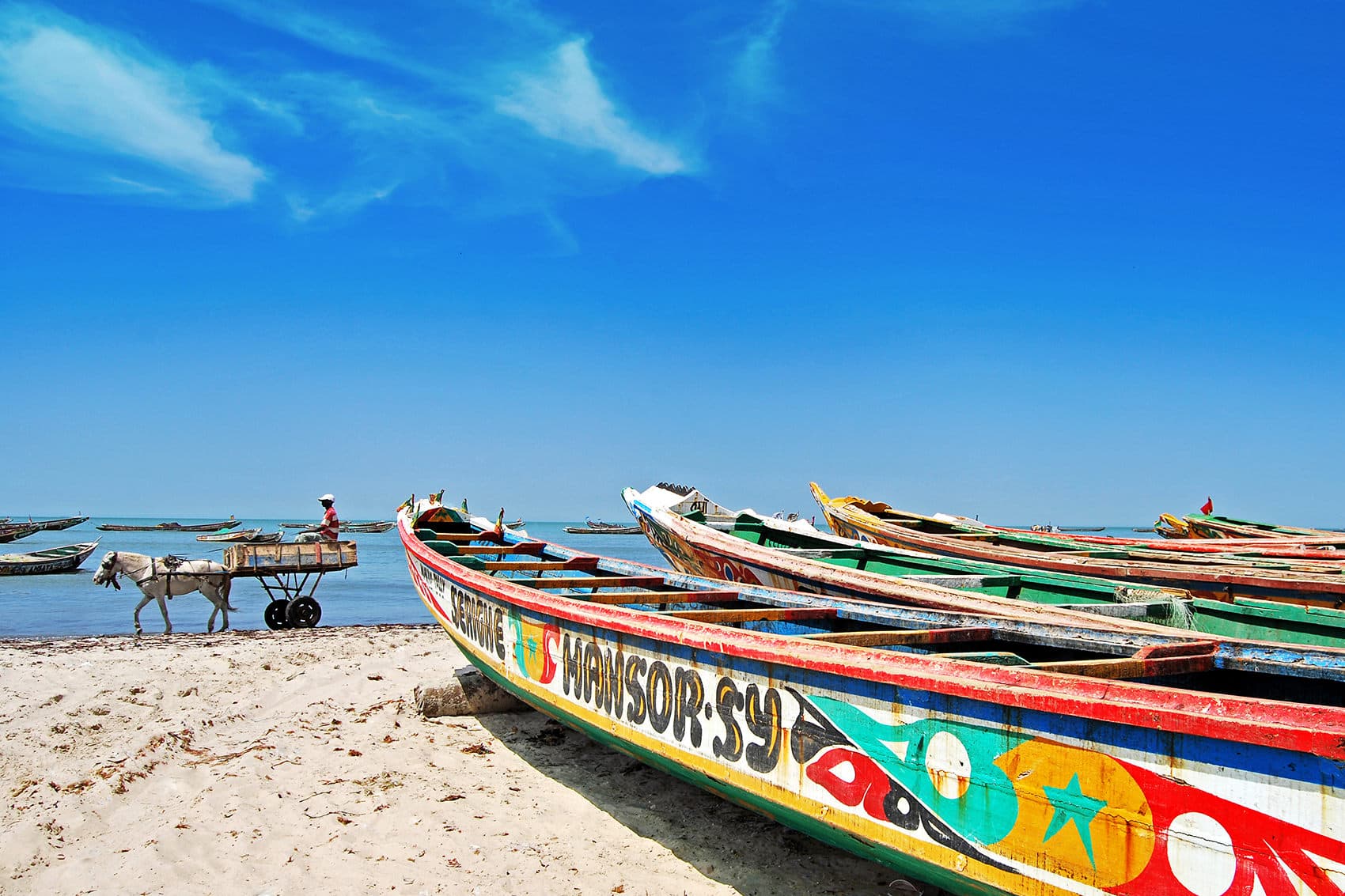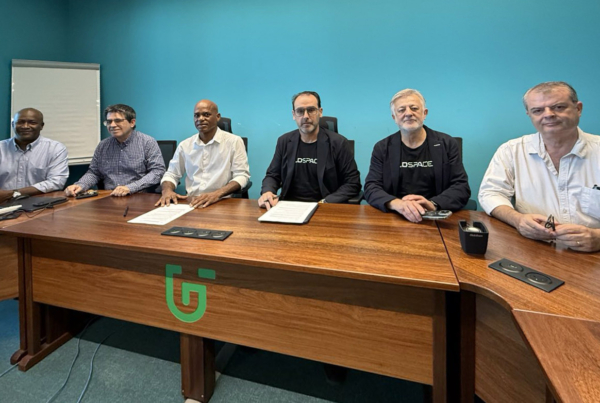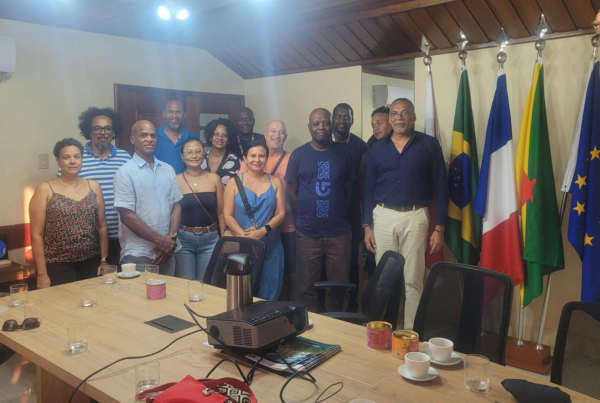
As part of the partnership between the University of Guyana (UG) and the Cheikh Anta Diop University in Dakar (UCAD) and the Gaston Berger University in Saint-Louis, Senegal, the UG is hosting a delegation of seven teacher-researchers from UCAD and UGB during the week of 9 May 2022.
Tuesday 10 May 2022
6-8pm: Conference for students, UG staff and the general public: "Henri Lopes and Sony Labou Tansi, cultural immersion and novel writing", Amphithéâtre A, Campus Troubiran, Cayenne.
"Henri Lopes et les Antilles: une histoire d'amour et de filiation" (Henri Lopes and the West Indies: a story of love and filiation) aims to show, through a thematic and intertextual approach, the pervasiveness of the islands that make up this geographical setting in the fiction, essays and autobiographical texts of this African author. The geography of the West Indies is an essential link in his writing and thinking.
Henri Lopes' affective relationship with the West Indies is so fertile that it roots his work in the physical and cultural landscape of this part of the world, which he calls "pieces of Africa". Our analysis shows that both his novelistic trajectory and his epitextual statements support the idea that the West Indies are his second homeland.
We have also verified that the militant and intellectual consciousness of the Congolese novelist is forged by writers from the West Indies, whom he considers to be his godfathers. This debt to literature from the West Indies prompts Henri Lopes to question Creole identity through the prism of an exiled character whose break with Africa is difficult to accept because of his linguistic, musical and pictorial roots, which he cannot shake off.
Wednesday 11 May 2022
6pm: Lecture by Denis Assane DIOUF on "René Maran, colonial administrator and anti-colonial writer", Thursday 12 May, 6pm, Amphithéâtre C, Campus Troubiran, Cayenne.
1921 - 2021: one hundred years since colonial Metropolitan France rewarded Batouala, a true negro novel by Guiana-born writer René Maran (1887-1960). This literary consecration, which was unexpected to say the least, of a colonial administrator who was openly critical of the bullying and "errors" of which he was both a witness and a victim as a black civil servant, naturally upset the hierarchy. They concluded that Maran had "mistakenly entered the colonial administration". His early and turbulent career in the civil service was to suffer the consequences of this recognition. In this paper, which is based on a study of his administrative file (Archives Nationales AN Colonies EE II 6175), the Fonds Maran in the library of the Université Cheikh Anta Diop de Dakar and the Fonds André Fraise, as well as an analysis of Maran's literary writings and colonial legislative texts, we aim to show that this civil administrator was certainly a man of the colonial system, but an anti-system.
Denis Assane DIOUF
Denis Assane Diouf is a senior lecturer in African literature at Cheikh Anta Diop University in Dakar, Senegal. A member of the Interdisciplinary Group on Cultures and Identities (GIRCI) and the African and Francophone Studies Laboratory of the Arts, Cultures and Civilisations (ARCIV) doctoral school, he devotes his scientific research and teaching to black African literature, postcolonial and decolonial studies in French-speaking Africa, the poetics of history and the problem of identity among writers from Africa and the diaspora. The author of several publications and papers in these fields, he also co-edited the collective work, Slavery in words and images (2021).
Thursday 12 May
6pm: Lecture by Moussa DAFF for students, UG staff and the general public on the following topic: "Teaching the grammar of French as a foreign language in an action-based approach in French-speaking Africa", Amphithéâtre A, Campus Troubiran, Cayenne.
In this talk, we will take a brief look at the history of teaching French as a non-native language using these different methodologies: the direct method, the structured-global audio-visual method (SGAV) up to the advent of the CEFR: Common European Framework of Reference for Languages, drawn up in 2001 by the Council of Europe, which now recommends the action-oriented approach to teaching and learning modern languages by defining six common levels ranging from A1 to C1. We will define the action approach and its application in the teaching of grammar in French as a foreign language (FLE). We will conclude with a discussion of the new trend in didactics i.e. the development of the Theory of Joint Action in Didactics, which is a new approach.
The African context serves as a basis for reflection and illustration.
Moussa DAFF
University Professor of Linguistics and Didactics
Teacher of French and African linguistics, didactics of bi-plurilingualism, francophone literature, French as a foreign language (FLE). Former Director of the ARCIV doctoral school. Former President of the Conference of French-speaking INGOs. Former coordinator of the Francophone programme: Teaching French in a multilingual context: French-speaking Africa and Portuguese-speaking African countries. Several teaching assignments in Africa, Europe and the Indian Ocean.




